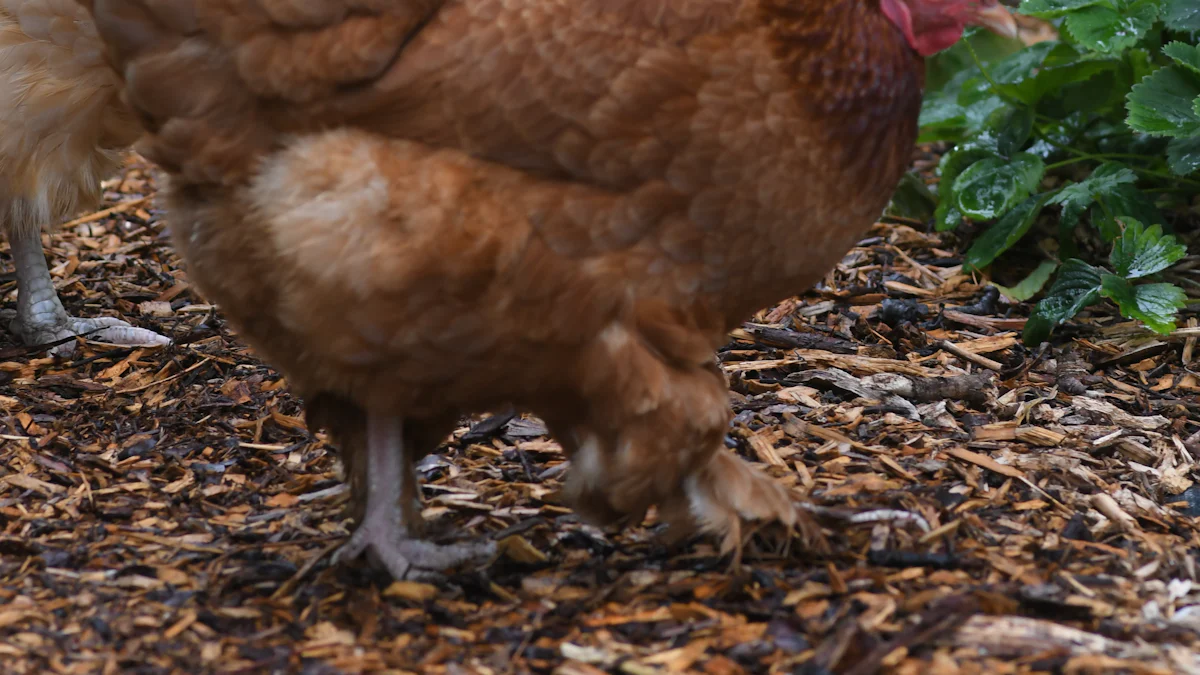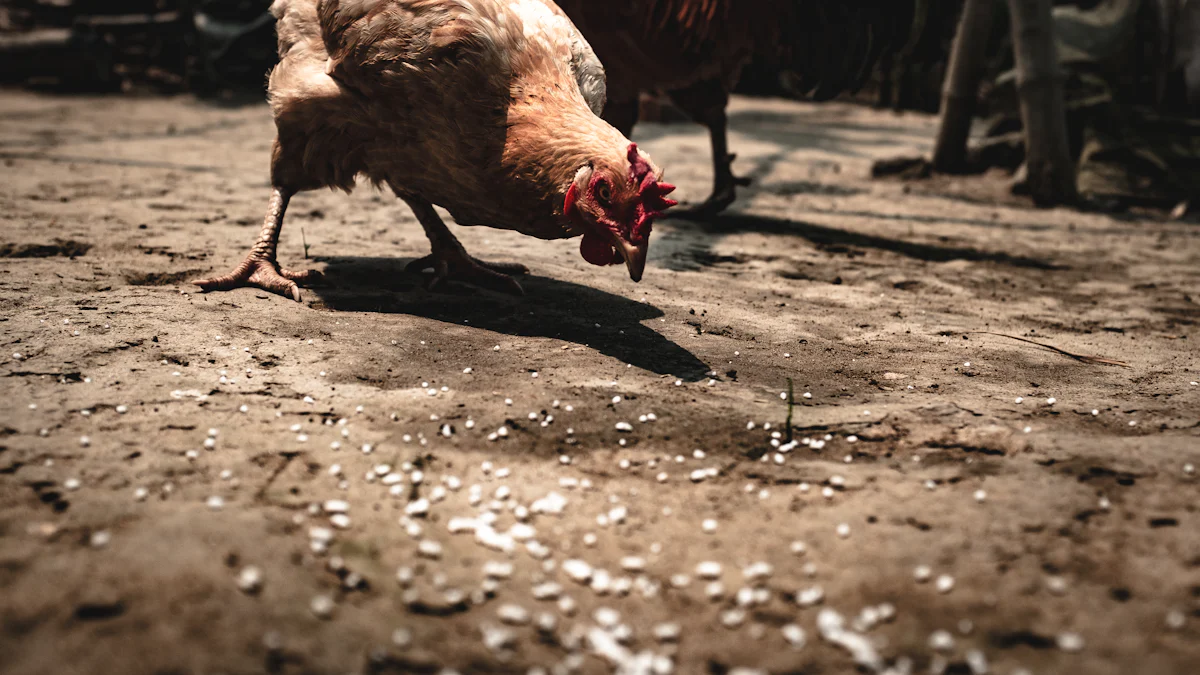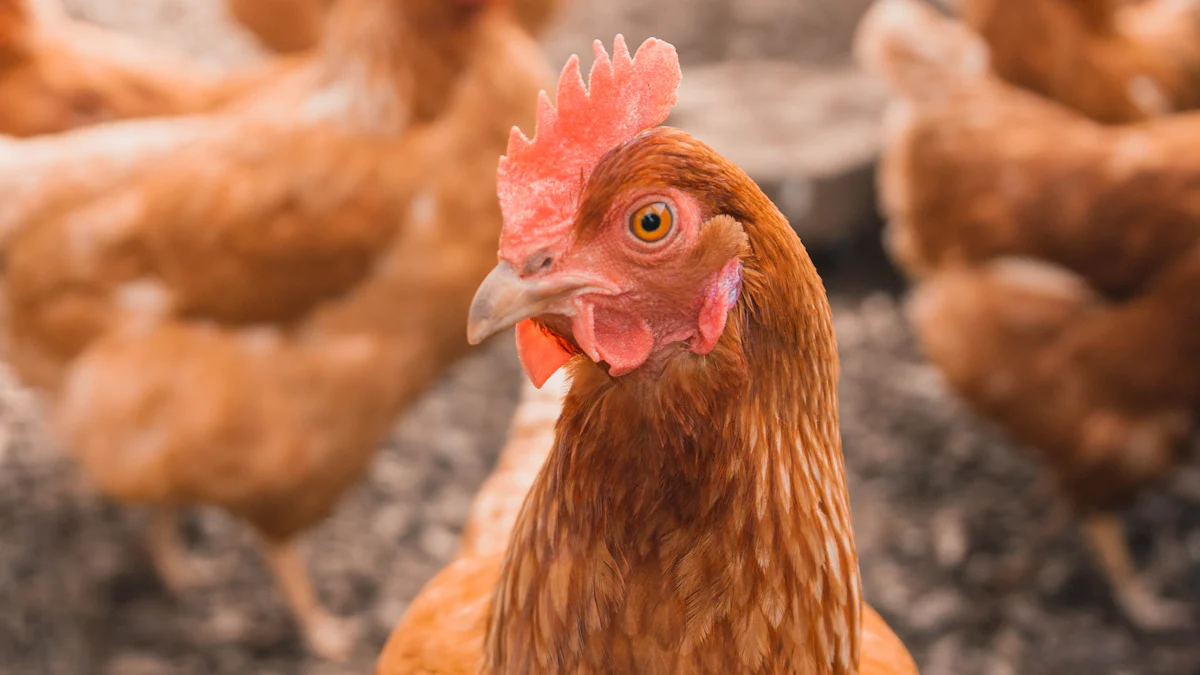Effective Ways to Boost Chicken Weight

Boosting chicken weight is crucial for enhancing productivity and profitability. Ensuring chickens are high weighted involves raising healthy birds that grow rapidly and deliver better outcomes. Understanding the key factors is essential to achieving this goal. Nutrition is a critical component, with essential nutrients like proteins, carbohydrates, and fats supporting growth. Natural growth promoters, such as garlic and ginger, are known to enhance weight gain, with studies indicating that ginger supplementation can lead to significant increases in body weight. Environmental conditions also play a role in growth, as proper housing and temperature control create a comfortable environment. Learn how to make chickens high weighted and explore solutions for chicken egg problems. Additionally, discover 25 chicken-friendly plants that can benefit your flock. With the right knowledge, how to tell if a chick is a rooster becomes a straightforward task.
Understanding Chicken Nutrition
Essential Nutrients
Proteins
Proteins play a vital role in chicken growth. Chickens need proteins for muscle development and feather production. High-quality feeds provide the necessary protein levels. Starter feeds contain more protein to support rapid growth in chicks. Broiler chickens benefit from well-formulated starter, grower, and finisher diets.
Carbohydrates
Carbohydrates supply energy for daily activities. Chickens use carbohydrates to maintain body temperature and support movement. Grains like corn and wheat are excellent carbohydrate sources. These grains help chickens stay active and healthy.
Fats
Fats provide concentrated energy. Chickens need fats for proper growth and development. Fats also help absorb fat-soluble vitamins. Including fats in the diet ensures balanced nutrition. Healthy oils and seeds can be good fat sources.
Vitamins and Minerals
Importance of Calcium
Calcium is essential for strong bones and eggshell formation. Laying hens require adequate calcium levels. Oyster shells and limestone are common calcium supplements. Providing these ensures healthy egg production and skeletal strength.
Role of Vitamin D
Vitamin D aids in calcium absorption. Chickens need sunlight exposure for natural vitamin D synthesis. Proper housing with access to sunlight supports this process. Supplementing vitamin D in feed can also ensure optimal health.
Feeding Strategies

Balanced Diet Plans
Starter Feed
Starter feed provides essential nutrients for young chicks. High protein content supports rapid growth. Chicks require this feed for the first few weeks. Starter feed ensures strong development.
Grower Feed
Grower feed suits chickens in the middle growth phase. This feed contains balanced nutrients for continued growth. Protein levels remain high but slightly lower than starter feed. Grower feed helps chickens build muscle efficiently.
Finisher Feed
Finisher feed prepares chickens for market weight. This feed focuses on energy and weight gain. Lower protein levels balance with higher energy content. Finisher feed maximizes final weight effectively.
Feeding Frequency and Timing
Optimal Feeding Times
Feeding times impact chicken growth. Early morning and late afternoon are ideal. These times align with natural feeding behaviors. Consistent schedules promote healthy eating habits.
Adjusting for Growth Stages
Adjust feeding as chickens grow. Young chicks need frequent meals. Older chickens benefit from fewer, larger meals. Tailor feeding strategies to each growth stage. This approach optimizes weight gain and health.
How to make chickens high weighted?
How to make chickens high weighted?
Using No-Waste Feeders
No-waste feeders prevent feed spillage. Chickens consume all the feed provided. This method reduces waste and saves money. Feeders with proper design ensure efficient feeding. Consistent feed intake supports weight gain.
Group Feeding Dynamics
Group feeding encourages social interaction. Chickens eat better in groups. This behavior leads to improved feeding habits. Observing group dynamics helps identify feeding patterns. Adjustments can enhance overall growth.
Natural Growth Promoters
Benefits of Garlic
Garlic acts as a natural growth promoter. Adding garlic to chicken feed boosts immune function. Improved health leads to better weight gain. Garlic also enhances digestion. Healthier chickens grow faster.
Advantages of Ginger
Ginger offers significant benefits for chickens. Including ginger in the diet promotes weight gain. Studies show increased body weight with ginger supplementation. Ginger improves appetite and digestion. Stronger chickens achieve higher weights.
Environmental Factors

Housing Conditions
Temperature Control
Proper temperature control ensures healthy chicken growth. Chickens thrive in stable environments. Extreme temperatures cause stress and hinder weight gain. Use heaters or fans to maintain optimal conditions. Consistent temperatures promote steady growth.
Ventilation
Ventilation plays a crucial role in chicken health. Fresh air prevents respiratory issues. Good airflow reduces humidity and odors. Install fans or vents for effective ventilation. Healthy chickens grow faster with proper air quality.
Space and Comfort
Adequate Space Per Bird
Adequate space allows chickens to move freely. Crowded conditions lead to stress and aggression. Provide enough room for each bird to roam. Spacious environments support natural behaviors. Healthy movement contributes to weight gain.
Stress Reduction Techniques
Stress reduction improves chicken well-being. Calm environments enhance feeding habits. Minimize loud noises and sudden changes. Offer enrichment activities to keep chickens engaged. Reduced stress leads to better growth and productivity.
Health Management
Regular Health Checks
Identifying Common Diseases
Regular health checks help identify common diseases in chickens. Early detection ensures timely intervention. Chickens often face issues like respiratory infections and coccidiosis. These diseases affect growth and productivity. Observing symptoms like coughing or diarrhea can indicate health problems. A veterinarian can provide accurate diagnoses and treatment plans.
Vaccination Schedules
Vaccination schedules play a vital role in chicken health management. Vaccines protect chickens from diseases. Common vaccines include those for Marek's disease and Newcastle disease. Following a proper schedule ensures immunity. Consult with a poultry expert to establish an effective vaccination plan. This practice reduces disease outbreaks and enhances flock health.
Parasite Control
Internal Parasites
Internal parasites pose significant threats to chicken health. Worms like roundworms and tapeworms affect digestion and nutrient absorption. Regular deworming programs prevent infestations. Use safe and approved medications for treatment. Monitoring feces can help detect parasite presence. Maintaining cleanliness in the coop reduces parasite risks.
External Parasites
External parasites like mites and lice cause discomfort and stress in chickens. These parasites lead to feather loss and skin irritation. Regular inspections help spot infestations early. Dust baths with diatomaceous earth can control mites. Clean bedding and nesting areas minimize parasite habitats. Effective management promotes healthy and productive chickens.
Genetic Considerations
Selecting the Right Breed
Fast-Growing Breeds
Fast-growing breeds offer a significant advantage in poultry farming. These breeds reach market weight quickly. Farmers save on feed costs with these breeds. The genetic makeup of fast-growing breeds supports rapid muscle development. Breeds like Cornish Cross excel in growth rate and efficiency.
Hybrid Varieties
Hybrid varieties combine traits from different breeds. Farmers benefit from the best characteristics of each parent breed. Hybrids often show improved growth rates and resilience. The genetic diversity in hybrids enhances adaptability to various environments. Many farmers choose hybrids for their balanced performance.
Breeding Practices
Crossbreeding Techniques
Crossbreeding techniques enhance growth and productivity. Farmers select parent breeds with desirable traits. The offspring inherit these beneficial characteristics. Crossbreeding can improve disease resistance and feed conversion. Careful selection ensures optimal results in the next generation.
Maintaining Genetic Diversity
Maintaining genetic diversity is crucial for long-term success. Diverse genetics reduce the risk of disease outbreaks. A varied gene pool enhances adaptability to environmental changes. Farmers should avoid excessive inbreeding to preserve diversity. Regularly introducing new genetic lines helps maintain a healthy flock.
Scientific Research Findings:
Genome-wide association studies have identified significant SNPs associated with growth traits in chickens. These include genes like GH, IGF1, and IGF2.
The somatotropic axis, including genes such as GH and IGF1, regulates metabolism and growth in chickens. Specific SNPs in these genes influence body weight and size.
Understanding genetic considerations allows farmers to optimize chicken growth effectively. Selecting the right breeds and employing strategic breeding practices lead to healthier and more productive flocks.
Boosting chicken weight involves several key strategies. Providing the right nutrition and employing effective feeding strategies ensure a happy, healthy, and productive flock. Unrestricted access to clean water and high-quality feed accelerates growth and ensures overall health. Regularly weighing chickens helps prevent obesity-related health issues. Implementing these methods leads to optimal results. Sustainable practices maintain flock health and productivity. Embrace these strategies to achieve success in poultry farming.
